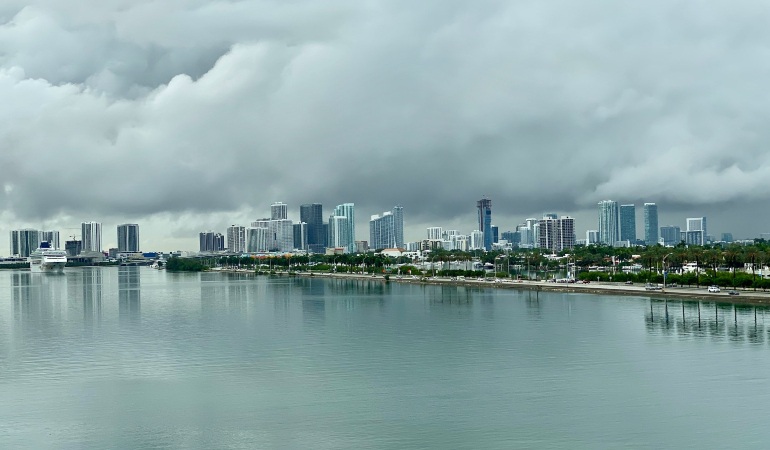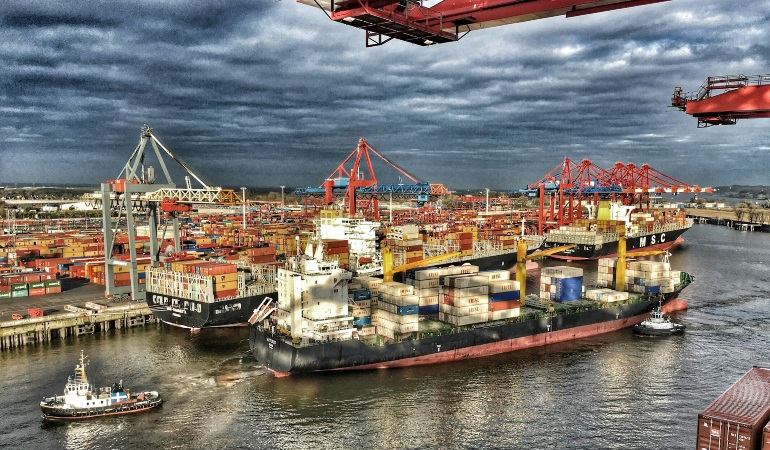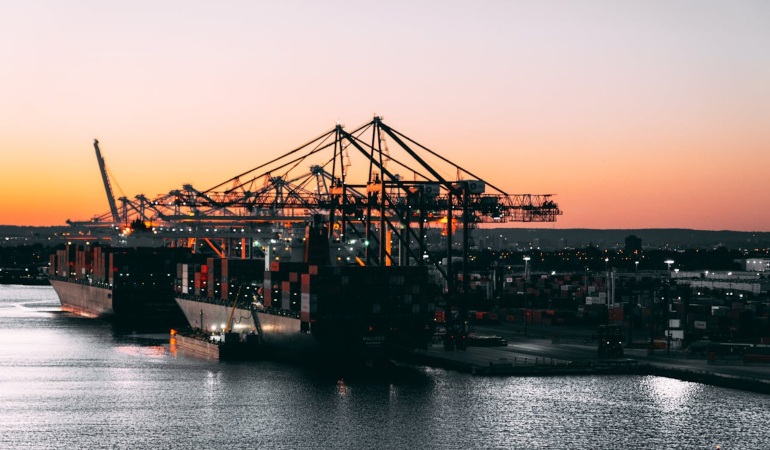The Effect of Hurricane Season on Miami’s International Shipping
This is a guest post by Mark Caldwell.
Hurricane season brings unique challenges for Miami’s international shipping industry. As a major hub for global trade, Miami’s ports play a crucial role in connecting businesses with markets worldwide. However, hurricanes can disrupt these operations, leading to delays, increased costs, and logistical headaches.

Businesses must navigate port closures, shipment rerouting, and potential damage to goods. Understanding these impacts is key to keeping your business running smoothly, even when the weather doesn’t cooperate.
Why Hurricane Season Matters to Your Business
The implications of hurricane season extend beyond immediate disruptions, affecting businesses that rely on Miami’s international shipping.
Port closures can create a backlog that ripples through global trade routes. Cargo ships might reroute, increasing transit times and costs. Even after a storm passes, recovery efforts can slow operations for weeks. This can lead to inventory shortages, missed deadlines, and unplanned expenses.
Recognizing these challenges is the first step in protecting your supply chain during hurricane season.
What to Expect?
During hurricane season, shipping schedules can become highly unpredictable, often throwing logistics into disarray.
Storm warnings frequently lead to last-minute changes, causing delays that ripple through your entire supply chain. Ports may close with little notice, forcing ships to stay at sea longer or reroute to less convenient locations, which can increase transit times and fuel costs. Even when ports reopen, the resulting backlog of shipments can create further delays as dockworkers and customs officials scramble to catch up.
Additionally, the safety of your cargo can be at greater risk, with goods more susceptible to damage from high winds, heavy rains, and rough seas. Weather-related issues can also strain relationships with partners and customers as delivery timelines become harder to predict.

Using Storage Services to Safeguard Your Goods
Hurricane season can put your goods at risk, especially if stored in vulnerable locations around Miami.
Consider utilizing off-site storage services provided by Pro Movers Miami, a company known for its secure, climate-controlled facilities. In addition to storage, they offer comprehensive packing, moving, and even emergency moving services, ensuring that your inventory is protected and easily accessible when needed.
Whether you’re storing goods temporarily while waiting for a safe shipping window or incorporating these services into a broader contingency plan, having a reliable solution can help maintain your supply chain’s integrity during hurricane season.
The Ripple Effect on Global Supply Chains
When Miami’s ports experience disruptions during hurricane season, the effects are felt far beyond the local area. As a critical node in the global supply chain, delays in Miami can cause a domino effect, impacting shipping schedules across multiple continents.
For instance, a delayed shipment in Miami might lead to stock shortages in distant markets, forcing businesses to scramble for alternative suppliers. These interruptions can also lead to production slowdowns as manufacturers wait for crucial materials that are stuck in transit.
Additionally, increased demand for alternative shipping routes can drive up costs, further squeezing profit margins. In some cases, businesses may need to rethink their entire logistics strategy, shifting away from just-in-time inventory models to buffer against these seasonal uncertainties.

Preparing for the Worst: How to Mitigate Risks
To safeguard your business during hurricane season, you need to take proactive steps to mitigate risks.
Start by identifying alternative shipping routes that bypass hurricane-prone areas, reducing the likelihood of delays. Diversifying your suppliers and logistics partners can also provide a safety net; if one route is compromised, you can quickly pivot to another.
Consider investing in weather forecasting and real-time tracking tools to stay informed about potential disruptions. These technologies allow you to make timely decisions, such as rerouting shipments or adjusting delivery schedules.
Insurance is another critical consideration—review your policies to ensure your goods are adequately covered against storm-related damages.
Lastly, communicate regularly with your partners and customers, setting realistic expectations and keeping everyone informed of any changes.
The Role of Technology in Weathering the Storm
In the shipping industry, technology plays an important role in managing the challenges of hurricane season.
- Real-time tracking systems enable you to monitor your shipments at every stage, providing critical updates on delays or route changes caused by storms.
- Advanced weather forecasting tools can also give you early warnings, allowing you to adjust your plans before a hurricane strikes.
- Communication platforms help maintain constant contact with your logistics partners, ensuring everyone is on the same page and can respond quickly to disruptions.
- Data analytics tools offer another layer of protection by identifying patterns in previous hurricane seasons, helping you predict and plan for potential issues.
Case Studies: Lessons from Past Hurricane Seasons
Looking at past hurricane seasons provides valuable insights into how businesses can navigate future challenges.
For example, during Hurricane Irma in 2017, many companies faced severe delays as Miami’s ports were forced to close, causing a massive backlog of shipments. Businesses that had contingency plans in place, such as pre-arranged alternative routes and flexible delivery options, were able to minimize the impact and resume operations more quickly.

Another lesson comes from Hurricane Dorian in 2019, where companies that invested in real-time tracking technology were better equipped to reroute shipments and avoid the worst of the storm’s impact.
These cases underscore the importance of preparation and adaptability.
Long-Term Considerations for Your Shipping Strategy
Hurricane season is an annual challenge, so it’s important to incorporate long-term strategies into your shipping operations.
Start by evaluating your logistics planning with a focus on seasonal patterns. This might involve adjusting your shipping schedules to avoid peak hurricane months or securing backup storage facilities in less vulnerable locations.
Building resilience into your supply chain is also key—consider establishing stronger relationships with multiple suppliers and logistics partners to provide flexibility during disruptions.
Regularly reviewing and updating your contingency plans will ensure they remain effective as new technologies and risks emerge.
Conclusion: Navigating Miami’s International Shipping Landscape During Hurricane Season
Navigating the challenges of hurricane season requires foresight, flexibility, and a well-prepared strategy.
By understanding the potential disruptions to Miami’s international shipping and taking proactive steps to mitigate risks, your business can continue to thrive even in the face of severe weather. From leveraging technology to learning from past experiences, each measure you take strengthens your ability to maintain smooth operations.
As you refine your shipping strategy, keep the lessons of hurricane season in mind, ensuring your business remains resilient and competitive in this critical global trade hub.

This was a guest post by Mark Caldwell.
Author Bio
Mark Caldwell is a logistics expert with over ten years of experience in global shipping. He specializes in disaster preparedness and risk mitigation, helping businesses navigate the challenges of hurricane season.





